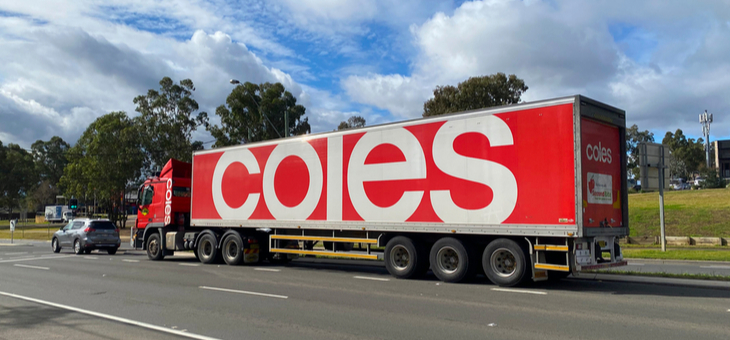Supplies in Australian supermarkets are once again under threat due to a key shortage that’s disrupting supply chains.
There are growing concerns that some supermarket shelves could be bare heading into Christmas, as dwindling supplies of the diesel exhaust additive AdBlue threaten to keep trucks off the road.
What seems like a shortage of a niche product could actually cripple the economy in a short space of time, trucking industry figures say.
“There is nothing made or consumed that doesn’t travel on a truck,” Australian Trucking Association chair David Smith told The New Daily.
“It would affect [supplies of] Weet-Bix on the shelf.”
Read: How to avoid buying dangerous products this Christmas
AdBlue is the brand name for a liquid called diesel exhaust fluid (DEF). The general aim of DEF is to reduce a vehicle’s carbon emissions through a process called selective catalytic reduction.
In Australia, light and heavy diesel vehicles are subject to environmental standards for the exhaust fumes they produce. Using AdBlue in vehicles to reduce emissions is part of that legal requirement.
The AdBlue liquid is added to the stream of diesel exhaust gas before it exits the vehicle. The mixture reacts with the exhaust gas and turns particles into (relatively) harmless water molecules and nitrogen atoms.
The reason behind the dwindling supplies of AdBlue is due to another shortage – of the chemical compound urea. Within AdBlue, urea works to kick-start the chemical reaction that cleans the exhaust.
Read: How to spot a fake review, before it ruins your Christmas shopping
What is in short supply is specifically synthesised urea, a product chiefly imported from Russia and China. Both countries have restricted exports of the substance to protect supplies for local farmers.
It’s unclear exactly how much AdBlue is left in Australia, but federal energy minister Angus Taylor says there is about seven weeks’ worth of AdBlue stocks left, which would take the nation through to mid-January, and that the government is working to secure supplies.
“We are quickly and actively working to ensure supply chains of both refined urea and AdBlue are secure, so that industry can have certainty on their operations,” Mr Taylor said in a statement.
“I can assure Australians that the government is working to ensure we do not face any shortages. We are pursuing a range of measures to address global pressures in the urea market. We will keep our trucks running and Australian motorists on the road.”
Domestic AdBlue manufacturers, such as AUSBlue, say they have enough supplies of urea on hand to supply their current customers but have charter flights on standby to bring in more supplies if needed.
“Should it come to pass that we do look like we’re running out [of stock], we will just spend whatever it takes to fly material into Australia,” says Simon Henry, chief executive of DGL Group, the parent company of AUSBlue.
While the AdBlue shortage is a threat to getting stocks onto supermarket shelves, another shortage threatens to halt Australian farming completely.
Read: Our supply chain is strong but medicine import the ‘weakest link’
A shortage of fertiliser has sent prices skyrocketing to around $1320 per tonne. Fertiliser is spread on all types of crops to feed and nourish the plants. It’s expected this increased price will be passed on to customers if farmers decide to grow their crops at all.
The fertiliser shortage is being primarily driven by record-high prices oil and gas, which are used in the manufacturing process.
“We’ll see more rationing, as farmers will use less fertiliser because it’s too expensive, which could disrupt the global food supply chains,” says agricultural market analyst Andrew Whitelaw.
“Fertiliser is one of the key components ensuring we’re able to feed the world. If farmers are using less fertiliser, there’s the potential for lower yields and if there’s lower yields there’s less food to go around.”
Have you noticed any product shortages in stores? Are you worried this might affect your Christmas shopping? Let us know in the comments section below.
If you enjoy our content, don’t keep it to yourself. Share our free eNews with your friends and encourage them to sign up.

